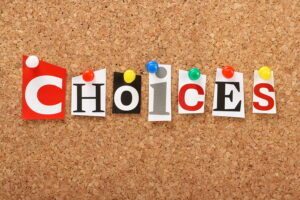As a group of experienced music teachers who provide private lessons for beginners, we fully understand the art of motivating beginner piano students. Keeping young learners excited and consistent on the piano requires intentional strategies, positive reinforcement, and creative routines that match each child’s personality. This approach helps build habits that stick—and produce musical progress.
Understanding Motivation: Intrinsic and Extrinsic
Our teaching philosophy balances both intrinsic motivation (internal enjoyment) and extrinsic motivation (external rewards). By combining fun activities with meaningful feedback, we cultivate long-term engagement rather than short bursts of effort. Research supports that intrinsic motivation—or love of learning—boosts progress more than external rewards alone.PianodaoERIC
Effective Strategies to Keep Motivation High
Whether in your living room or a virtual lesson, here’s how we encourage students to stay engaged:
- Use challenge boards and goal trackers
- Weekly stickers or badges for listening, practice, or mastering a pieceLessons In Your HomeColourful Keys
- Select fun and meaningful repertoire
- Incorporate popular tunes, film themes, or simple melodies kids already enjoy
- Play games and improvisation
- Turn rhythm clapping into call-and-response games or practice musical improv
- Offer consistent positive feedback
- Praise effort, not just perfect execution. Highlight small wins regularly
- Set small, achievable goals
- Break pieces into bite-sized sections; celebrate completion of each
Why In‑Home Lessons Work Well
Learning piano in a familiar home environment reduces anxiety and lets us tailor lessons to each student’s energy level and mood:
- Teachers identify what energizes each child—sometimes it’s a specific song or technique—and weave that into lessons
- Parents can observe and reinforce motivation outside lesson time
- Lessons can shift pace faster or slower, depending on how the student is feeling each week
Motivating Beginner Piano Students With Tech Support
Technology can support motivation when used intentionally:
- Interactive apps like Simply Piano offer real-time feedback and gamified progression
- Recording practice sessions and reviewing them together helps students appreciate progress and spot areas to refine
Still, we always blend technology with human guidance to create meaningful growth rather than passive screen time. In fact, a study published on arXiv found that combining guided digital tools with traditional teaching significantly enhances music learning outcomes.
Supporting Music Education at Home
Encourage consistent piano practice by:
- Scheduling regular short practice sessions (10–20 minutes daily)
- Discussing goals and reflections after lesson each week
- Celebrating progress with low-pressure mini-recitals or video sharing with family
For more support strategies for beginner music students, visit our blog on how to help struggling students succeed at piano.
FAQ: Motivation for Beginner Piano Students
Q: What motivates young piano beginners most?
A: Young learners are often most motivated by songs they recognize, fun rewards like sticker charts, and playful movement-based activities.
Q: Does motivation fade over time?
A: Motivation can fade without continual encouragement. Regular creative tasks, refreshed repertoire, and visible progress help sustain engagement.
Q: Can technology keep motivation high?
A: Yes, when paired with teacher feedback. Apps like Simply Piano add novelty, but our one-on-one support ensures learning remains musical and meaningful.
